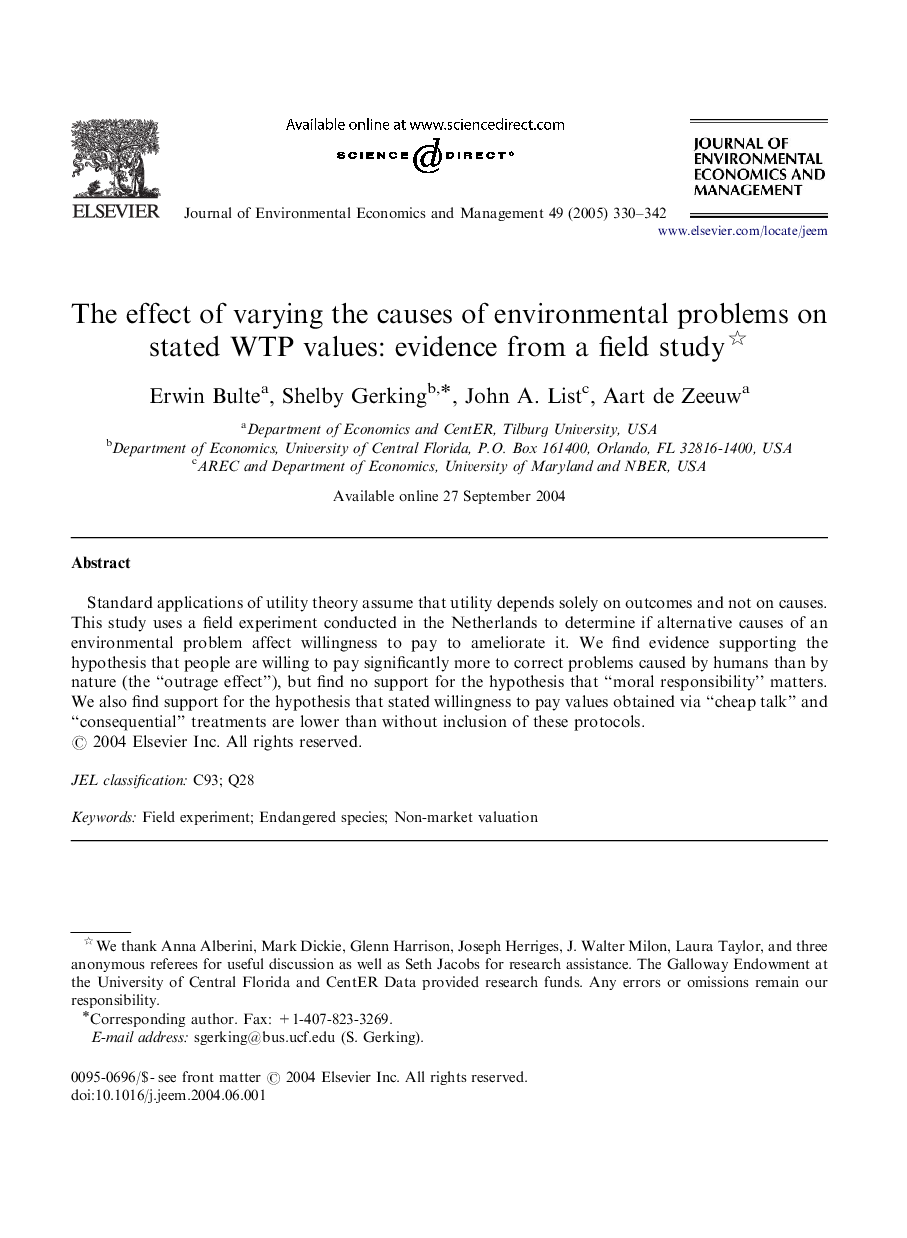| Article ID | Journal | Published Year | Pages | File Type |
|---|---|---|---|---|
| 10475422 | Journal of Environmental Economics and Management | 2005 | 13 Pages |
Abstract
Standard applications of utility theory assume that utility depends solely on outcomes and not on causes. This study uses a field experiment conducted in the Netherlands to determine if alternative causes of an environmental problem affect willingness to pay to ameliorate it. We find evidence supporting the hypothesis that people are willing to pay significantly more to correct problems caused by humans than by nature (the “outrage effect”), but find no support for the hypothesis that “moral responsibility” matters. We also find support for the hypothesis that stated willingness to pay values obtained via “cheap talk” and “consequential” treatments are lower than without inclusion of these protocols.
Related Topics
Social Sciences and Humanities
Economics, Econometrics and Finance
Economics and Econometrics
Authors
Erwin Bulte, Shelby Gerking, John A. List, Aart de Zeeuw,
